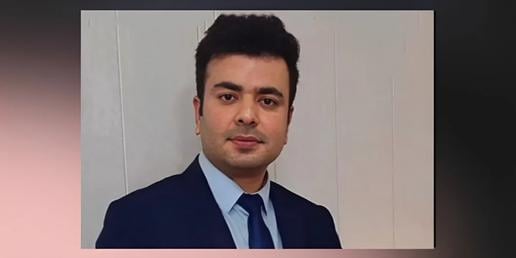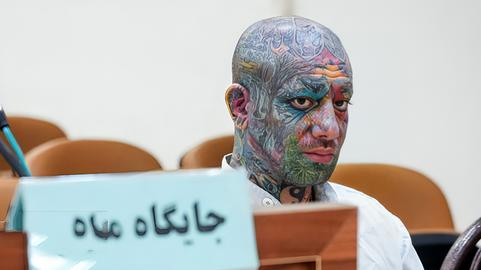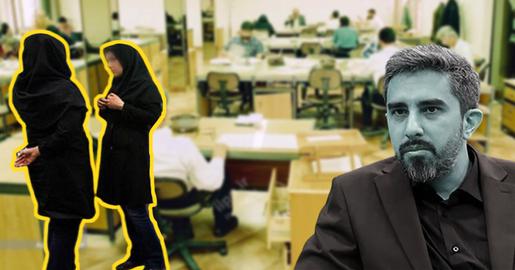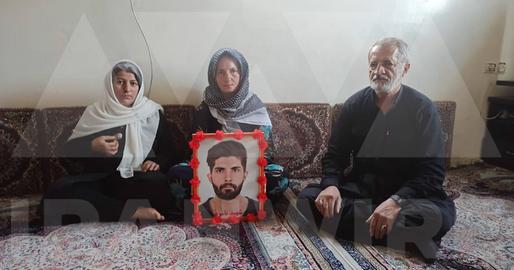You’re listening to Iran’s Weekly Wire; I’m Roland Elliott Brown.
*
Last week, on April 2nd, Iran and six world powers—the US, France, Germany, Russia and China—reached what they call a “framework agreement”. The idea is to limit Iran’s nuclear program to peaceful purposes.
Nothing is final yet, but it’s starting to look like there will be a final deal within a few months.
The Obama administration has been pushing really hard for this. Obama wants a new relationship with Iran to be part of his legacy when he leaves office.
But what will that legacy mean? Will there be more or fewer nuclear weapons in the Middle East?
*
Joseph Cirincione is president of the Ploughshares Fund, a global security foundation devoted to nuclear non-proliferation.
He’s been involved with non-proliferation issues for decades. And he thinks last week’s agreement is great news.
[Joseph Cirinione:] It's a stunning achievement. The breadth and depth of the agreement surprised almost everyone. No one expected an agreement that was going to limit Iran's capabilities, for this long, to cut into them this deeply. I mean, it sets back Iran's program to levels that we haven't seen for almost ten years. If this agreement is actually signed into a formal agreement in 90 days, it will prevent Iran from being able to develop a nuclear bomb for at least 15 years.
So what do the big powers in the Middle East think?
Most of them worry that Iran is on the march throughout the region.
None of them wants to see Iran develop a nuclear weapon, because they think it would make Iran more aggressive.
Saudi Arabia resents Iran’s support for militia in Syria, Iraq, and Yemen.
As the center of Sunni Islam, it doesn’t want to see a Shia Muslim rival empowered.
Back in 2008, the late Saudi King Abdullah told the US to “cut the head off the snake,” by destroying Iran’s nuclear program.
Joseph Kechichian is a political scientist and senior fellow at the King Faisal Centre in Riyadh. I asked him how last Thursday’s agreement was viewed on the Arab side of the Persian Gulf.
[Joseph Kechichian:] Actually it's quite favorable. King Salman of Saudi Arabia came out and said he supported the joint action plan. He said that he hoped an agreement could be reached, and that this will reduce tensions. So at least in public, there is an acceptance of the fact that the P5 + 1 are going to have a signed agreement. But again, the devil is in the details, and I think Saudi Arabia and the other Gulf countries look forward to making sure that whatever agreement is signed, is actually implemented.
Saudi Arabia and its neighbors don’t trust Iran any more than they used to. But they see potential to do business in a new way.
[Joseph Kechichian:] The official position is that we want to have a long-term relationship with Iran, but we cannot have a long term relationship that is beneficial to both sides if the current government in Tehran continues on its current path.
Earlier this week, on April 7th, Turkish President Recep Tayyip Erdogan made an official visit to Tehran. Turkey and Iran are traditional rivals, but they can’t afford to fall out with each other, since Turkey buys huge amounts of Iranian gas.
Erdogan has told Iran bluntly to stop interfering in Iraq and Yemen. But Turkey is good at dividing up its disputes with Iran. And as a NATO member that hosts NATO nuclear weapons, it is not as concerned about Iran’s nuclear program as the Arab Gulf countries.
I asked Soli Ozel, a professor of international relations at Istanbul Kadir Has University, how Turkey regards last Thursday’s framework agreement.
[Soli Ozel:] Turkey does recognize Iran's right to enrich uranium. But Turkey wishes it to stay within the bounds of the Nonproliferation Treaty. And it is probably happy with this framework which will be limiting Iran's enrichment capacities and would actually keep it under surveillance, and so all in all, I think the Turkish government's position on the agreement is a positive one.
But if Iran’s traditional Sunni rivals have been placated for the time being, there is still one country that opposes the agreement in unequivocal terms.
Israel, which is still the only nuclear power in Middle East, worries about Iran supporting Hezbollah on its northern border in Lebanon, and Hamas in Gaza, and has been raising the alarm about a nuclear Iran for years.
I asked Yiftah Curiel, spokesman for the Israeli Embassy in London, for Israel’s reaction.
[Yiftah Curiel:] You’ve heard our prime minister and other ministers in the Israeli government, so you know that we do not think this is a good deal. We are not against a deal, we'd like to see a better one, but this is not the deal we were hoping for. The bottom line is that Iran is maintaining an active nuclear weapons R and D capability. It is maintaining the vast majority of a program which has absolutely no civilian logic or justification, up till a point in time, and I assure you it will be the worst point in time for the West, at which it will decide to break through to a weapon.
So Israel views last Thursday’s agreement as a stepping-stone to a nuclear weapon.
I asked Joseph Cirincione of the Ploughshares Fund what he makes of the objections of Israeli Prime Minister Benjamin Netanyahu.
[Joseph Cirincione:] It's actually somewhat stunning to me. I don't remember any time an ally of the United States, particularly one that is so dependent on US security assistance and security guarantees has been so oppositional about a foreign policy issue. I believe the result is that Mr. Netanyahu is marginalising himself. The opinion of him has come down in the American public. You see many politicians that are keeping their distance from him at this point.
But for the Israeli government, this isn’t a matter of gratitude or diplomacy. Here’s Yiftah Curiel again.
[Yiftah Curiel:] Iran today is the main sponsor of terror in the region. Iran is the country behind a lot of the security threat Israel faces on its borders. I mean, just two years ago, I hid with my daughters in the stairwell of my house in Tel Aviv as grad rockets were being fired from Gaza at Tel Aviv. These grad rockets have "made in Iran" written on them physically. It's not something theoretical or a geopolitical kind of problem, it's something very tangible for Israelis.
I also asked him how that threat related to Iran’s nuclear program.
[Yiftah Curiel:] What they will do with a nuclear capability is open up a whole range of disastrous scenarios from passing on materials to terror groups, creating different kinds of havoc.
But supporters of a deal may not take Israel’s arguments at face value. I spoke to Kaveh Afrasiabi, a US-based professor of political science. He worked as an adviser to Iran’s nuclear negotiating team from 2004 to 2006.
[Kaveh Afrasiabi:] There is no surprise whatsoever in Israel's reaction because Israel considers any deal with Iran as ipso facto bad, and, you know, manipulates and exploits the Iran nuclear issue for its own political purposes, and Israel sits on all these nuclear warheads. In my opinion is afraid that in the aftermath of a deal, international focus will be on Israel and its refusal to allow international inspections, and the pressure on Israel to join the NPT.
So in other words, he thinks Israel is mainly concerned about maintaining its own nuclear deterrent as the only one in the region. In this regard, he’s on the same page as Turkish President Recep Tayyip Erdogan. Here’s Soli Ozel.
[Soli Ozel] Turkey wants a nuclear-free Middle East, which means the current Turkish president, when he was prime minister, on a number of occasions, brought up the issue of Israeli nuclear weapons and basically wanted those to be eliminated as well in order for the region to be totally nuclear-free.
But where Afrasiabi and Erdogan see a future nuclear weapons free zone, Israeli spokesman Yiftah Curiel predicts only snowballing proliferation:
[Yiftah Curiel:] If Iran, a country which has betrayed the West and the United Nations and the IAEA so many times, and is creating such havoc in the region, is trusted with 6,000 centrifuges, a reactor, several R and D facilities, then you can imagine that other countries in the region will come and say, justifiably, well, if Iran is trusted with these massive nuclear capabilities, surely we can be trusted with those capabilities.
I asked Joseph Kechichian what he makes of the regional proliferation argument.
[Joseph Kechichian:] Obviously everyone is speculating at this point because nobody knows what is going to be the final agreement, what it will look like. If the agreement is such that Iran lives up to its commitment not to develop nuclear weapons, then I don't think there will be a problem. If Iran eventually becomes a nuclear power, make no mistake about the fact that Saudi Arabia and the Gulf countries will probably embark on a similar strategy.
I also asked Joseph Cirincione how predictable nuclear proliferation is.
[Joseph Cirincione:] I've been studying this field for about 30 years, and there is nothing automatic about nuclear proliferation. North Korea, for example, detonated a nuclear weapon in 2006. You heard many people say the same thing. But almost ten years later japan hasn't gone nuclear, South Korea hasn't gone nuclear, Taiwan hasn't gone nuclear, there has been no impulse for Indonesia or Malaysia or Vietnam to start programs of their own. No. And the reason is that there are plenty of things that states can do to reassure those countries, and to increase the barriers to proliferation.
So if a final deal does go ahead, will it lead to more or fewer nuclear weapons in the Middle East, and in the world?
[Joseph Cirincione:] There's no question that this deal is good for the United States, it's good for our allies in the region, and it's good for the world, because what you're doing here is rolling back Iran's program, freezing it, locking it up, and then putting cameras on it. Once other countries see this, and they see it happening, there's not going to be a rush to duplicate what Iran has done.
Of course, it’s impossible to say where negotiations will lead in the coming months, and how other countries will react.
But it’s worth considering how far this debate has come already. We used talk about Mahmoud Ahmadinejad’s threats to destroy Israel, while the US and Israel hinted that they might bomb Iran.
Now it’s about fine details, about good deals and bad deals. Now there are elements, at least, of hope and rationality.
*
That’s all for Iran’s Weekly Wire. If you want to find out more about this issue, join us on Twitter or Facebook, or visit IranWire.com



























comments